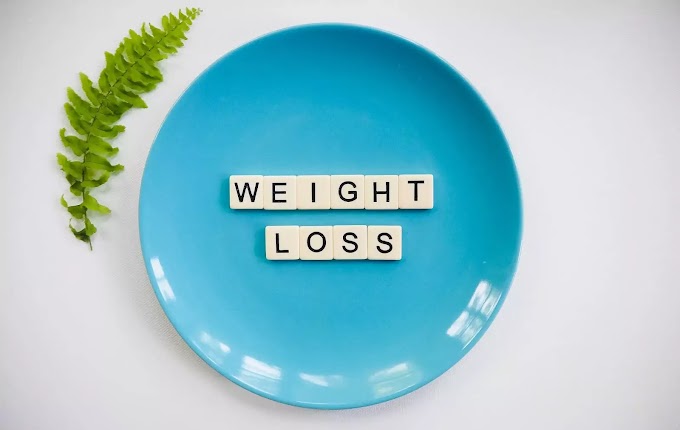How long does it take for milk to be digested? Know everything about milk
you must have seen that the elders of the household put a lot of emphasis on drinking milk. Sometimes parents do not have to listen to the scolding of parents for not drinking milk. This is due to the nutritional content of milk which gives many benefits to health. However, it has been observed that some people are unable to digest milk. In medical language, it is called Lactose Intolerance. As a result, they have to be two to four due to a variety of digestive problems. At the same time, what is the right time to drink milk? How long does it take for milk to be digested? Does drinking milk make gas? As such, many questions about milk also come to mind. This article will answer many such questions. Here you will be given complete information about the digestion of milk and milk which for you will be beneficial.
Digestion of milk: Why is milk beneficial for health?
Milk and dairy products have been consumed for thousands of years. The reason is the nutrients present in milk. Therefore, your body gets the benefits of drinking milk. Milk contains many essential nutrients such as calcium, phosphorus, protein, potassium. Drinking milk strengthens bones and muscles. At the same time, the calcium and phosphorus present in milk Considered Teeth are good for. Even your heart gets the benefits of drinking milk every day.
According to an NCBI report, drinking milk can also reduce the risk of ischemic heart disease and ischemic stroke (stroke due to blood clotting). The benefits of milk also improve the condition of the stomach. Its antacid effects Indigestion And Acidity Along with much more Digestion Are Related problems helpful in reducing.
Digestion of milk: Nutritious ingredients of milk
Milk provides various health-promoting nutrients in various ways. One cup (240 ml) whole milk contains these nutrients:
Calorie: 149
Protein (Protein): 8 grams
Fat: 8 grams
Carbs: 12 grams
Calcium: 21%
magnesium (magnesium): 6% DV
potassium (potassium): 7% DV
vitamin D (vitamin D): 16%DV
DVcalcium in milk is important for bone growth, while magnesium and potassium blood pressure (blood pressure) Are necessary for regulation. This is low in calories but rich in protein.
Digestion of milk: what is the right time to drink milk?
According to Ayurvedic medicine, Cow's milk should be consumed in the evening. How is milk digested at different times? It is described below;
Morning: Drinking milk on an empty stomach is prohibited in the morning due to heavy digestion. This can cause. However, consuming a glass of milk with cereal in mid-breakfast will give you energy.
Evening: Drinking a glass of milk in the evening is useful for every age group.
Night: According to Ayurveda, the right time to drink milk is at night. It is also said that drinking milk at night promotes Ojas (a stage in Ayurveda when digestion is cured). According to science, drinking a glass of warm milk before going to bed reduces physical and mental stress. It contains an amino acid called tryptophan which aids in sleep. Milk relaxes your body and secures the sleeping hormone (melatonin). Therefore, if you sleep problems are struggling with, then you should try to drink a glass of milk before bedtime.
How is milk digested in the body?
The digestion process begins in the mouth, where your slightly acidic saliva mixes with the milk and begins to break it. When you swallow milk, it goes to the esophagus and stomach. The gastric juice in the stomach further breaks down the milk and kills any living bacteria present in it. The stomach then sends milk to the small intestine, where nutrients - such as amino acids, protein building blocks, fatty acids, fat building blocks - are absorbed. At the same time, the undissolved material moves into the large intestine and is ejected through the rectum. Waste fluids are also expelled during passing urine.
Digestion of milk: Role of lactase Not
Everyone's body is made for milk. As you age, the production of lactase in your body decreases. Lactose is an important enzyme for the digestion of milk and other dairy products. The small intestine produces lactase. If your body produces a small amount of lactase, you may have lactose intolerance. Lactase levels vary from person to person. Some people have so little lactase that they find it difficult to digest milk, resulting in gastrointestinal discomfort.
How long does it take for milk to be digested?
Many people in the Western diet do not digest milk properly. Lactose is a natural sugar found in milk, and lactase is an enzyme that helps people digest it. After childhood, your body produces less lactase to digest milk. Because milk contains all six nutrients; Protein, fat, carbohydrates, vitamins, minerals, and water. Milk passes through your stomach into the small intestine and then into the large intestine. It is estimated that food lasts at least four to five hours in the stomach. In the same way, high-fat milk lasts for four to five hours compared to low-fat milk. The milk passes into the small intestine where most of the nutrients are digested and absorbed. A mixed food can take three to five hours to pass through the small intestine. The remaining milk passes through the large intestine during a period of up to 24 hours, where some water and vitamins, and minerals are absorbed. It is based on just one estimate, and different types of milk Digestion time may vary.
Digestion of milk: Why do some people have lactose intolerance?
Lactose is the main sugar found in milk and other dairy products. People who have lactose intolerance have difficulty digesting sugar. Such people usually do not have enough lactase in their small intestine, which can digest lactose.
Digestion of Milk: Symptoms of Lactose Intolerance
Between 30 minutes to two hours after consuming lactose-containing food or drink, the sufferer may experience the following symptoms:
flatulence,
diarrhea,
stomach cramps, etc.
In some cases, these symptoms can also be severe.
Digestion of milk: which people are affected?
About 60% of adult humans are lactose intolerant. However, it also varies depending on the place. According to the National Health Service, lactose intolerance is most common among people of African, Asian, Hispanic, and American Indian descent. At the same time, this condition is found in about 90% of the people of China.
Lactase levels may decrease in premature babies because the small intestine does not develop lactase-producing cells until then.
Diseases that affect the small intestine can cause lactose intolerance. These include celiac and Crohn's disease.
If your stomach cancer to radiation therapy to treat chemotherapy has resorted to intestinal complications, there is an increased risk of increased lactose intolerance.
Home remedies for milk digestion There
are ways to reduce the symptoms of lactose intake:
Take small servings
Sometimes milk intake becomes difficult due to excessive intake of milk. Therefore, consume only up to 4 ounces (118 ml) of milk at a time. The lower the number of servings taken, the lower the chances of gastrointestinal problems.
Take milk along with food with other foods
When taking milk, slows down the digestive process and may reduce the symptoms of lactose intake.
Experiment with dairy products Not
all dairy products contain the same amount of lactose. For example, hard things like; Swiss or Cheddar contain small amounts of lactose. In the same way, you can buy cultivated dairy products like Yogurt which can also be consumed, as bacteria used in the culturing process naturally produce lactose-breaking enzymes.
See Lactose Free Products
"Lactose-free" or "low lactose" milk and other dairy products are widely available in the market. Therefore, food labels should be checked while taking products. However, these products are not suitable for people because people with milk allergies are allergic to the protein present in milk. These proteins are also present in the removal of lactose from the products.
Is Lactose Intolerance Dairy Allergies the same as it is?
No, intolerance and allergies are different. peanut allergy Milk allergy second most common after Food allergies. When allergic to milk, the body reacts adversely to the protein found in milk, while lactose is the cause of the presence of glucose in the milk or non-digestion of milk. Milk allergy can be more harmful than non-digestive conditions.
Frequently Asked Questions about
Milk Is it more beneficial to drink raw milk?
No, you should not drink raw milk. According to experts, unboiled milk in the body may increase the risk. Therefore, do not consume raw milk. However, you can apply raw milk to the skin.
What are the benefits of drinking hot milk?
Hot milk Promotes sound sleep. Hot milk intake at night May helps in fighting insomnia. It also helps prevent many types of digestive disorders.
Which is easier to digest from cow or buffalo milk?
Cow's milk contains 4-5% fat. Digestion of cow's milk is mild due to reduced fat content. Whereas buffalo milk has more calories, protein, and fat content as compared to cow's milk, hence it takes longer to digest.
What is the best time to drink milk to gain weight?
For weight gain, milk is an important nutrient-rich food. Calcium, protein, vitamins, and carbohydrates are essential nutrition for weight gain and muscle building. Therefore, people who are keen to gain weight can include milk and milk products in their day-long diet. To gain weight safely and effectively, it is necessary to consume a variety of calorie foods and it is easily possible to consume milk in various ways. Drinking one or two glasses of low-fat milk is an effective way to increase muscle development.
Should we drink milk on an empty stomach?
Consuming milk on an empty stomach can invite gastric problems. Yes, it can be taken in the morning breakfast along with other foods. However, this condition can vary from person to person depending on anatomy and needs.
Is drinking milk at night beneficial for health?
Yes, drinking a glass of milk at night is beneficial for your health. Let us tell you that drinking milk at night leads to good sleep and this Mental stress Is also less.
What should not be consumed with milk?
A combination of certain things with milk can prove to be dangerous for health. like
Lemon should not be used with milk or any food item made of salt. This can increase the chances of having skin problems.
According to Ayurveda, the consumption of citrus along with milk is absolutely prohibited. It is said that milk can make it toxic.
Consumption of things like curd, coconut, carrot, oil, garlic, sweet potato, potato along with milk is also prohibited.
It should not be taken with any hot item due to the effect of milk.
Non-vegetarian people do not forget to take milk along with fish. This is not good for combination health at all.
What to drink in milk?
The combination of certain things with milk increases the potency of milk and it becomes even more beneficial for health. For example,
consuming cardamom in milk not only enhances its taste but also doubles its nutrition. This combination is rich in many nutritions. This makes prevents anemia and also keeps your skin healthy.
Drinking almond milk benefits your health more. Especially by drinking soaked almonds mixed with milk, the body gets increased nutrients. It is also good for those who do not like the taste of milk.
The easiest and best way to drink milk is to drink jaggery. It removes the weakness of the body.
Turmeric milk increases your immunity. Seasonal symptoms like cold, cough, and flu are cured by drinking turmeric in light warm milk.
Ghee along with milk improves digestion power. It stimulates the secretion of digestive enzymes inside the body thereby accelerating digestion. It eliminates the constipation problem.
Milk is one of the main beverages for nutrient supply in vegetarian people. It contains many nutrients like calcium, vitamin A, protein, vitamin D, vitamin B12. Lack of digestion of milk can cause deficiency of these nutrients in a person. However, the good thing is that you can eat foods that supply these nutrients. Such as oranges, almonds, broccoli, sesame, spinach, dates, coconut, soy milk, figs, gram, carrots, etc. Apart from this, morning sunlight should be used to get vitamin D naturally.













0 Comments